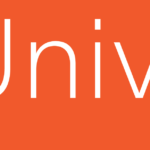
Clinical Updates in Reproductive Health is specially designed to provide concise, easy-to-read information about a wide spectrum of topics related to abortion care. Our team of experts combines the latest evidence with lessons learned in collaboration with health professionals globally to produce broadly relevant and useful clinical recommendations.
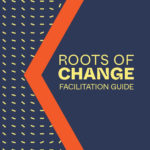
This guide is intended for advocates interested in supporting expanded access to safe abortion care in their countries. It will help you and your colleagues develop a strategy that considers the unique considerations for abortion-related advocacy. It is intended that you will work through the guide with a small group of stakeholders who are committed to working together on expanded access to safe abortion care. While it is a primer for those who may be new to abortion advocacy, it is also a helpful resource for experienced advocates.
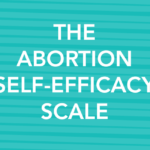
The Abortion Self-Efficacy Scale (ASES) is a 15-item tool designed to measure abortion self-efficacy at the individual and community level. The tool can be used as part of formative research to inform the design, content and messaging of interventions intended to increase abortion self-efficacy. It can also be used to measure changes in abortion self-efficacy over time. Additionally, ASES scores can be utilized to understand factors associated with abortion self-efficacy.
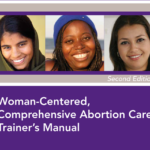
This manual is a resource for trainers who lead training courses for health-care workers delivering all elements of woman-centered, comprehensive abortion care, including postabortion care. It contains all of the instructions and materials needed to help participants develop the knowledge and skills necessary to provide high-quality care.
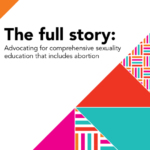
This toolkit is intended for advocates interested in supporting the integration of abortion into comprehensive sexuality education (CSE) programs. It covers key considerations for undertaking advocacy for CSE, plus tools to support advocates in developing a strategy and planning activities that respond to their national context.
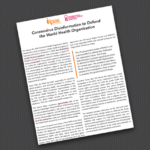
This fact sheet summarizes the work and scope of the World Health Organization (WHO); details efforts by the Trump administration and anti-rights allies to defund the agency prior to the coronavirus outbreak; and provides recommendations for the U.S. Congress to protect the work of the agency and other international organizations.
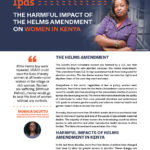
The Helms amendment is a law barring U.S. foreign assistance from being used for abortion services. This fact sheet describes the negative impact of the Helms amendment on women in Kenya, where abortion is legal under certain circumstances.
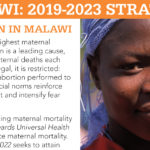
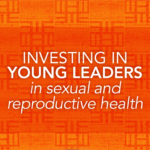
This brochure provides an overview of Ipas Ghana’s successful approach to working with young people on issues of sexual and reproductive health.
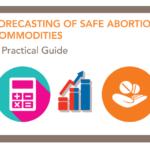
This guide is designed to assist safe abortion services program managers and providers in forecasting for the most critical medicines and medical supplies required for providing these services. While there are many guides for forecasting various reproductive health commodities, this guide specifically addresses forecasting for medical abortion drugs and vacuum aspirators. The step-by-step processes listed in this guide can be used to estimate the commodity requirements for a national program or for an individual service site for a given amount of time.
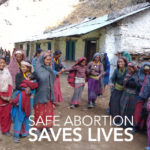
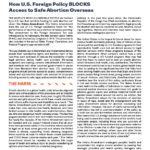
This factsheet provides an overview of the Helms Amendment and how it harms the world’s most vulnerable women by denying them access to safe abortion services.
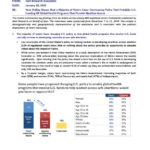
This memo summarizes key findings from an online survey among 800 registered voters nationwide conducted by Hart Research on behalf of Ipas.
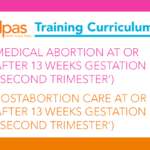
Medical abortion at or after 13 weeks gestation (‘second trimester’) and Postabortion care at or after 13 weeks gestation (‘second trimester’) each provide up-to-date clinical information, activities and learning materials for trainers.
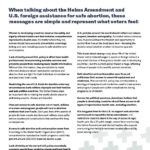
When talking about the Helms Amendment and U.S. foreign assistance for safe abortion, these key messages are simple and represent what voters feel, according to 2020 polling results.
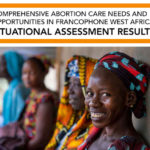
This situational assessment, conducted by Ipas in collaboration with international and in-country agencies in March-May 2015, looks at comprehensive abortion care (CAC) needs and opportunities in francophone West Africa. It concludes there are clear and promising opportunities to expand CAC services to the women who need them and are entitled to them by law, despite the cultural, religious and political opposition to CAC that remains strong in some settings. It also offers specific recommendations in support of implementing CAC programs in francophone West Africa.
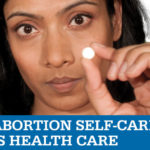
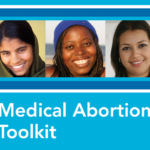
A set of guides and related resources providing up-to-date clinical information, activities and learning materials for trainers to use in helping health-care workers acquire the appropriate knowledge, attitudes and practical skills they need to provide first-trimester medical abortion.
This study sought to determine the proportion of women presenting for an induced abortion in Ghana who could use a gestational wheel to determine if they had reached at least 13 weeks or fewer than 13 weeks of pregnancy accurately.

